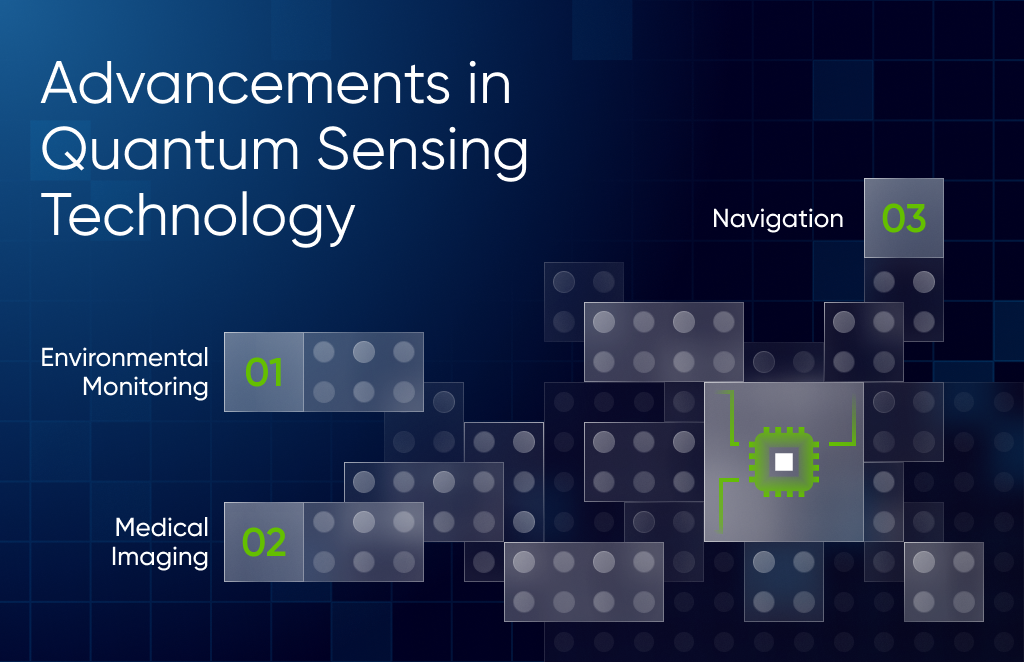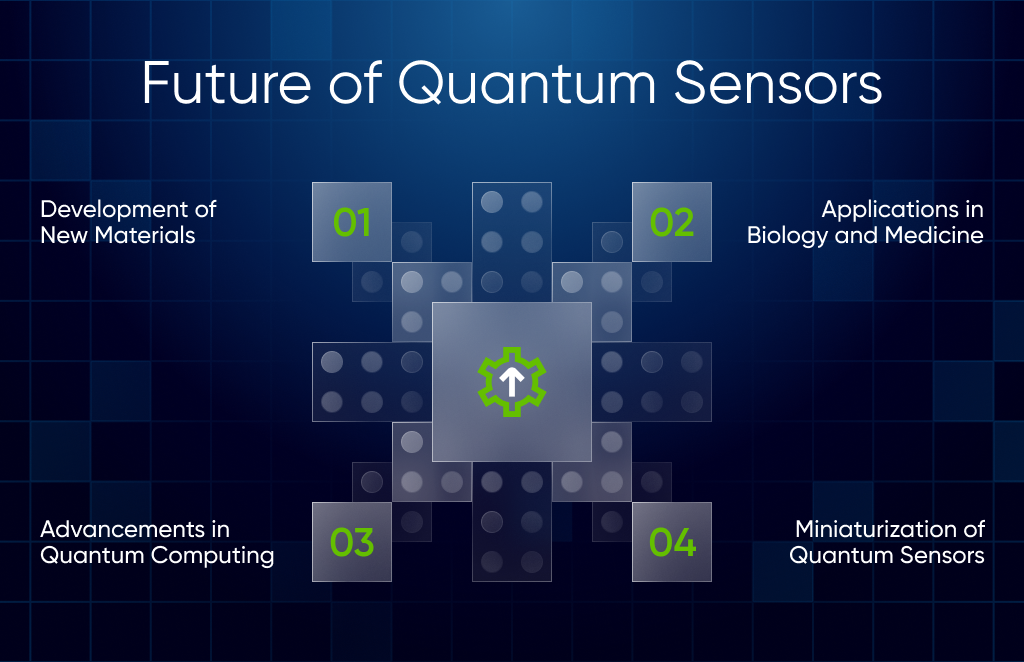Author: Talabuyev Y.
The global demand for high-precision measurements in critical applications is growing rapidly. Quantum sensing is positioned to meet this demand, offering a level of sensitivity unattainable with classical sensing methods. Furthermore, the quantum sensing market could reach one billion dollars by 2030, with an annual growth rate of 10-15%. According to McKinsey, by 2040, this technology will drastically change industries that rely on sensor technologies and revolutionize those that depend heavily on accurate measurements. Notably, it could even be used to train artificial intelligence algorithms.
- What Are Quantum Technologies and Quantum Sensing?
- Data Visualization and Diagnostics
- Navigation
- Microelectronics
- What’s Next?
What Are Quantum Technologies and Quantum Sensing?
Quantum technologies represent a new frontier in science and engineering, leveraging the principles of quantum mechanics to unlock new capabilities and solutions. Quantum mechanics itself is the study of the behavior of very small particles (such as atoms and photons), where the laws of classical physics no longer apply. In simple terms, quantum technologies harness the unusual but highly precise behavior of subatomic particles like atoms and photons, allowing us to achieve unprecedented levels of accuracy. As a result, quantum technologies are opening new possibilities in fields ranging from medicine to finance.
Thanks to quantum mechanics, we now have more reliable navigation systems, more accurate medical imaging, more secure communications, and, importantly, more powerful computations.
Quantum technologies enable the development of new types of devices and systems, with key areas of application being:
- Quantum computing
- Quantum communication
- Quantum sensing
While quantum computing often grabs the spotlight, quantum sensing is considered the most mature field. It has significant potential across various industries and is closely tied to quantum computing, as the powerful processors characteristic of quantum computing can accelerate data processing from sensors. These sensors are key components of quantum sensing, providing ultra-high sensitivity and precision.
Below, we explore four commercial applications of this technology that hold the greatest promise in addressing today’s market challenges.

Data Visualization and Diagnostics
Quantum sensors hold great potential in pinpointing the exact location of magnetic signals within the human body. Today, traditional diagnostic methods (such as MRI) are more commonly used, but they have limitations and require bulky and fragile equipment. McKinsey predicts that an alternative could emerge as early as 2030, with the production of sensors for new systems soon reaching a larger scale.
Navigation
Quantum sensors, including magnetometers based on neutral atoms or diamonds, will unlock new possibilities for navigation systems across various types of transportation. These systems would no longer rely on GPS satellite signals, which are ineffective in shielded environments, underwater, or underground. Additionally, quantum sensors do not require regular calibration and are 10-20 times more sensitive, leading to much more accurate measurements. Studies show that such sensors could be ready for commercial use within the next few years.,
Microelectronics
Quantum sensors can more efficiently detect defects and determine operating conditions in microelectronics. Their use may soon become standard practice in designing next-generation three-dimensional integrated circuits. The first of these sensors are already available and being used in experimental projects. It is believed that they will enhance the accuracy and reliability of operations in chip production, which is critical for devices of the future, including AI and data processing systems.
Subsurface Measurements
Reliable and precise underground measurements represent another promising commercial application of quantum sensors. These sensors provide more accurate results, especially in harsh environmental conditions. They can also effectively detect faults, locate mineral deposits, and identify water sources. Another advantage of quantum sensors in these tasks is their compact size, along with their ability to accurately identify magnetic and gravitational fields without interference from external noise. This capability enhances the resolution of maps captured by unmanned aerial vehicles (UAVs) by more than tenfold!
What’s Next?
The potential for quantum sensors goes far beyond the use cases described above. New insights gained through quantum sensors for observation and monitoring open up many additional opportunities. To realize this potential, specialized equipment and AI algorithms for data analysis are already in development.

Quantum sensors and cloud technologies are likely to become the perfect combination for industries that depend on processing large volumes of data and require a secure environment for computations. As quantum sensing technology evolves, interest in cloud platforms capable of handling real-time data analysis continues to grow.





